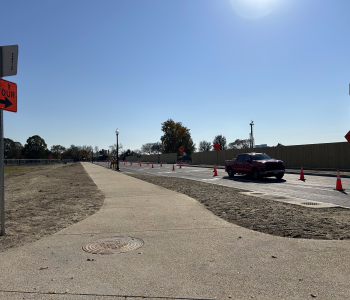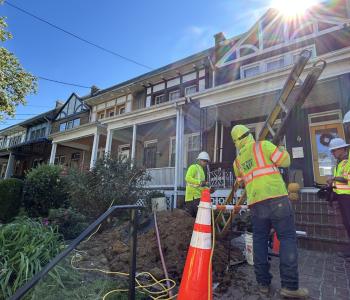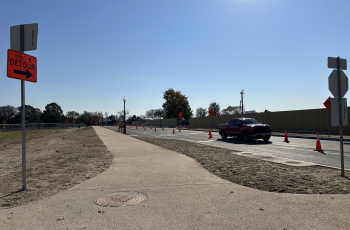DC Water Awarded Grant from Harvard University to Develop Innovative Green Infrastructure Financing Model;
The District of Columbia Water and Sewer Authority has been awarded a grant from Harvard University to develop an innovative financing model for green infrastructure (GI). The Social Impact Bond Technical Assistance Lab (SIB Lab) at Harvard Kennedy School will work with DC Water to explore the use of Pay for Success (PFS) models to develop GI storm water solutions designed to improve water quality, mitigate the impacts of climate change, and promote environmental, socio-economic and health benefits.
In the Pay for Success model, governments partner with private sector investors who provide up-front funding to promising service providers. Investors only receive a repayment from the government if the service providers work is measurably successful.
In addition to the benefits of green infrastructure, this work will further develop the social impact bond model and will be a huge public service to the industry and other CSO communities across the nation, said DC Water CEO and General Manager George S. Hawkins. And the SIB model is measurable, so that our investors and public stakeholders can objectively quantify results, which promotes accountability and smart programming.
DC Water was one of five grant recipients, along with the states of Arkansas and Nevada, the Commonwealth of Pennsylvania, and the city of San Francisco.
We are honored to receive this grant of technical assistance from the SIB Lab to provide the intellectual capital and institutional resources of Harvard University to help DC Water develop an innovative and unprecedented financing solution," said Mark Kim, DC Waters Chief Financial Officer. "Adapting the pay for success model to finance our GI initiative will broaden the reach of social impact bonds to more efficiently allocate project risk and deliver improved environmental outcomes.
In 2005, the U.S. Environmental Protection Agency (EPA), U.S. Department of Justice (DOJ), District of Columbia (District) and DC Water entered into a 20-year, $2.6 billion consent decree mandating the construction of a deep tunnel system to remediate combined sewer overflows (CSOs) in order to meet national water quality standards under the Clean Water Act. CSOs are one of the major sources of water pollution and approximately two billion gallons of CSOs are diverted into DCs waterways annually.
DC Water is pursuing the PFS model as a potential framework for financing a pilot Green Infrastructure Project (GI Project) that is designed to reduce the scope, scale and cost of the mandated grey infrastructure tunnel system, alleviate ratepayer burden, and produce measurable outcomes for communities within the District.
Specifically, the SIB Lab will be using available data and evidence to conduct a feasibility analysis of the proposed GI Project using the PFS model. The feasibility analysis would focus on five main aspects of the PFS transaction: (1) assessing whether the proposed interventions produce the desired outcomes; (2) confirming that the likely outcomes satisfy cost-benefit principles; (3) developing an efficient and effective payment structure within a PFS model; (4) insuring that there are adequate service providers that can deliver the desired outcomes; and (5) establishing rigorous evaluation criteria and metrics to measure the initiatives outcomes.








